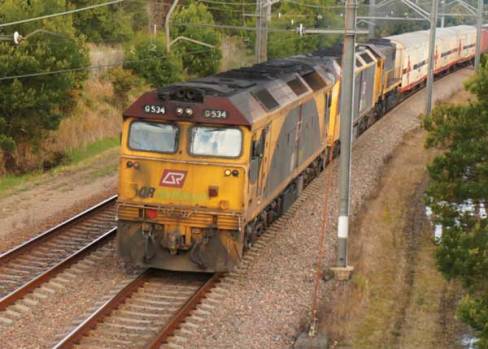By Paul Hemsley
The Queensland Coordinator-General has cleared the way for an environmental assessment of the Central Queensland Integrated Rail project that aims to break a major minerals export bottleneck.
Coordinator-General, Barry Broe finalised the terms of reference for the environmental assessment after receiving 21 submissions from the public and agencies on the controversial freight rail system linking mines in Galilee and Bowen Basins to ports in the Abbot Point and Hay Point areas.
Mr Broe said the public will have another chance to provide feedback on the project once the environment impact statement (EIS) was released.
“The submissions have been taken into account in finalising the terms of reference, so the way is now clear for the proponent to complete its EIS studies.
“When I am satisfied that the EIS addresses the terms of reference, the document will be circulated to key stakeholders, and advertised for public comment,” Mr Broe said.
An EIS covering the potential environmental impacts of rail operator QR National’s proposed $2 billion freight rail system is a requirement of the state and federal governments.
But the project has the agribusiness sector and farmers worried because it proposes to cut five creeks in some of the state’s biggest and flattest floodplains with the potential for environmental damage spanning over the next 100 years.
According to the state government, the terms of reference confirm that QR National has removed a 160 km section of the greenfields corridor as a result of the government’s policy decision on Galilee.
Announced in June this year, the policy has resulted in a reduction of the number of proposed rail corridors to just two rather than the eight proposed by the previous Bligh government.
Deputy Premier and Minister for State Development, Infrastructure and Planning, Jeff Seeney said the previous government’s “uncoordinated approach” led to multiple rail lines and other linear infrastructure across properties between the Galilee Basin and the coast.
Mr Seeney said the government intended to “rationalise” the number of new rail corridors built and encourages sharing of corridors wherever possible.
“This milestone brings us a step closer to determining how this rail proposal stacks up and how it may service the proposed mines in the Galilee Basin,” Mr Seeney said.
Comment below to have your say on this story.
If you have a news story or tip-off, get in touch at editorial@governmentnews.com.au.
Sign up to the Government News newsletter

